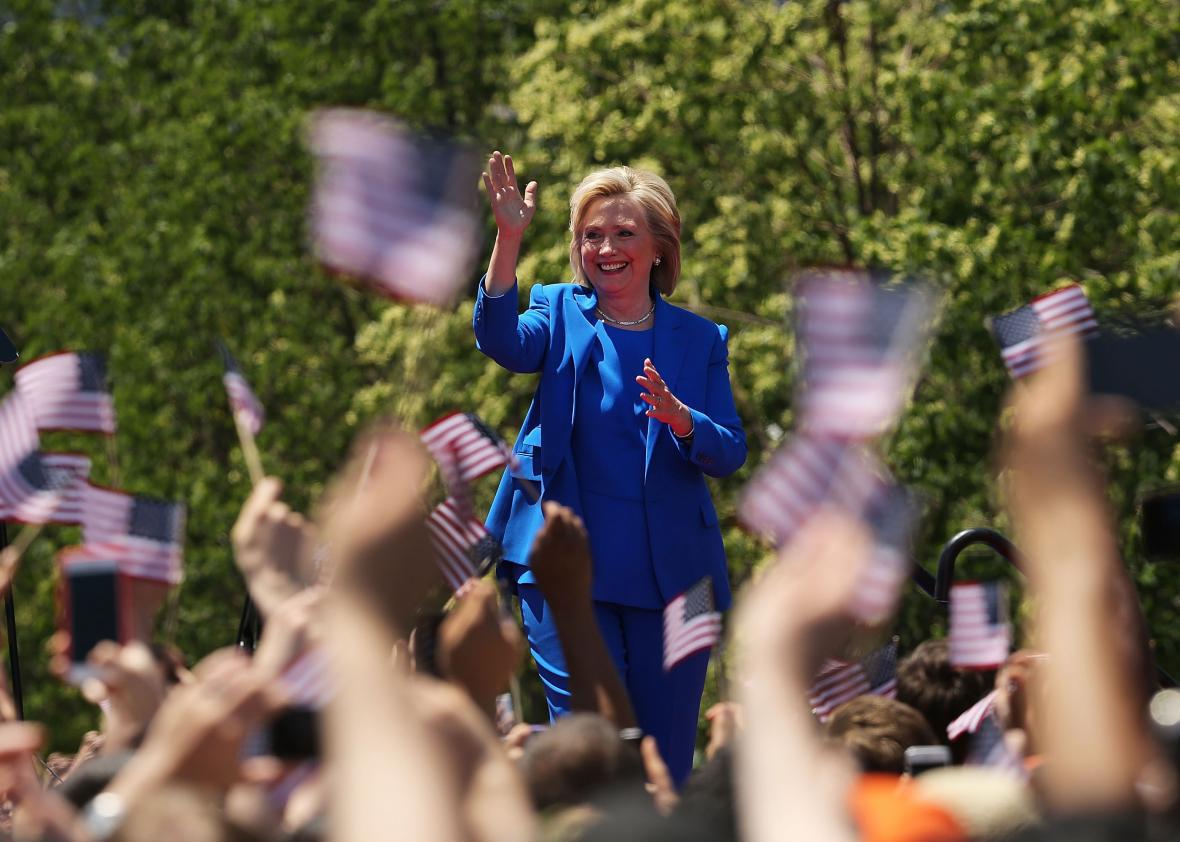Hillary Clinton told her fellow Democrats this week that she wants to make climate change a major issue on the campaign trail. The National Journal reports that Clinton “jumped at the chance to discuss the hot-button topic in political terms” at a closed-door meeting Tuesday in the Capitol. According to lawmakers in the room, Clinton “delivered a clear message: Democrats must convince the American public that action to combat Earth’s rising temperatures is urgent.”
The immediate question is: Does she really mean that?
Team Green will take some convincing. Climate activists have long been skeptical of Clinton’s climate bona fides, in no small part because of her unwillingness to speak out against the Keystone XL pipeline that continues to serve as a litmus test for their movement. To date, the best indication of how she would address global warming as president came last December when, referring to the climate rules being implemented by the U.S. Environmental Protection Agency, she declared that “the unprecedented action that President Obama has taken must be protected at all cost.” The climate crowd cheered those comments in the moment, but they remain largely underwhelmed. After all, they’ve long pushed for Obama to make climate change a bigger priority so the promise of more of the same from Clinton isn’t exactly a rallying cry.
But if Clinton really does try to make global warming a major campaign issue, she won’t be doing it to win over the climate hawks in her party. Those voters are much more likely to find something to love about Bernie Sanders and his environmental resume than about Clinton and the millions her family foundation has received from the oil industry. And the unfortunate reality for those voters is that Hillary doesn’t need to be concerned about them in the primary since she doesn’t have to worry about them in the general election. The climate crowd’s legitimate fears about what a climate science-denying Republican president would do will be a much greater motivating force on Election Day than their doubts about Clinton ever could be.
So, would a climate-heavy pitch help Clinton with general election voters? It’s difficult to say. As I’ve written about before, it’s clear that—all things being equal—a clear majority of Americans would prefer a president who believes what the science says about global warming. But, at the same time, it’s also clear that most Americans don’t yet care enough about the topic to make it a defining issue at the polls.
For most voters, then, climate change isn’t nearly the hot-button issue that it’s made out to be inside the Beltway. It may or may not be a winning topic for Clinton, but it almost certainly won’t be a losing one. A full-throated argument for climate action would, however, be in line with Clinton’s other campaign messages, which while progressive in nature also poll relatively well across the political spectrum. As with criminal justice and immigration reform, Clinton isn’t being pushed leftward on climate in the primary; she’s going there willingly with an eye on the mainstream for 2016.
Of course, campaigning on climate and acting on it are two different things. While candidates normally try to fulfill their campaign promises if they’re elected, so far Clinton hasn’t offered the type of specifics that would really box her in as president. And assuming she coasts to her party’s nomination next summer, she won’t need to offer any. Simply saying, “I believe in man-made climate change” or “I’ll do what Obama did” will be more than enough to give her the upper hand on climate in a general election match-up with a Republican opponent who is arguing the opposite. Expect Clinton, then, to focus on making the case for action instead of on what that action should look like. The latter is the policy debate we need to be having, but the former is far easier to sell from the stump.
Elsewhere in Slate:
